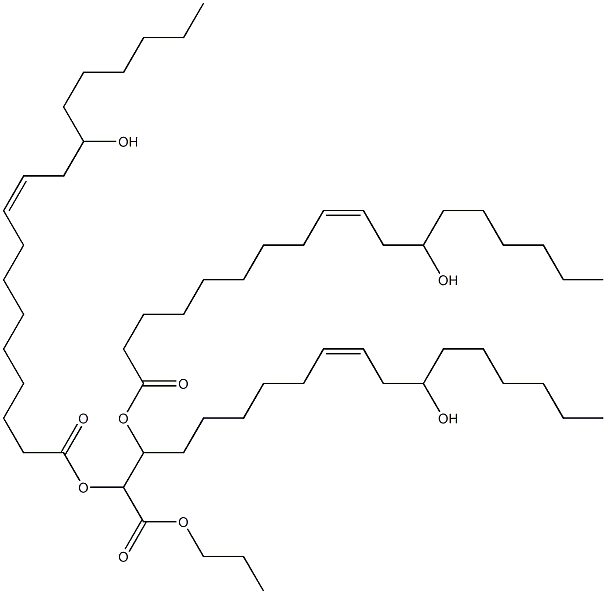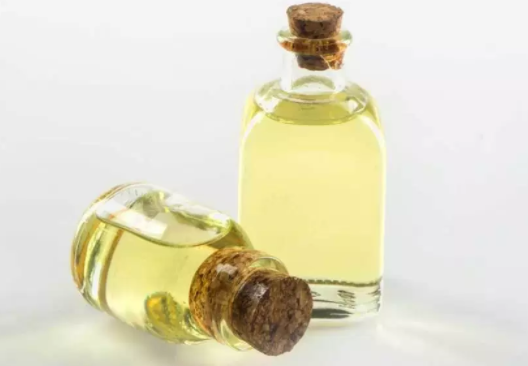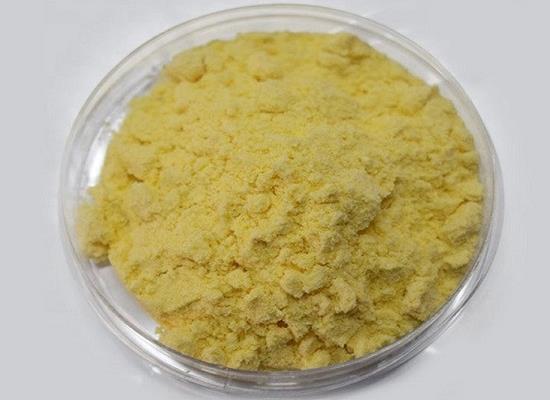What is the use of Castor oil?
Introduction
Castor oil is non-edible and differs from all other oils as having a major constituent of ricinoleic acid (90%). Compared to all other oils, castor oil is highly viscous, less soluble in hexane and more soluble in ethanol due to the presence of ricinoleic acid, a hydroxyl fatty acid. The same functional group is also responsible for using castor oil or derived products for various applications.
It is a vegetable oil obtained by pressing the seeds of the castor oil plant (Ricinus communis L.) that is mainly cultivated in Africa, South America, and India. Major castor oil-producing countries include Brazil, China, and India. This oil is known to have been domesticated in Eastern Africa and was introduced to China from India approximately 1,400 years ago. India is a net exporter of castor oil, accounting for over 90% of castor oil exports. At the same time, the United States, European Union, and China are the major importers, accounting for 84% of imported castor oil.
Property
Castor beans are cultivated for their seeds, yielding a viscous, pale yellow, nonvolatile and non-drying castor oil. Comparative analysis showed that the viscosity, density, thermal conductivity, and pour point values for castor oil were higher than those of a standard lubricant (SAE 40 engine oil). The unique structure of castor oil offers interesting properties, making it appropriate for various industrial applications. Castor oil is known to consist of up to 90% ricinoleic, 4% linoleic, 3% oleic, 1% stearic, and less than 1% linolenic fatty acids. Castor oil is valuable due to its high ricinoleic acid (RA) content, which is used in various applications in the chemical industry.
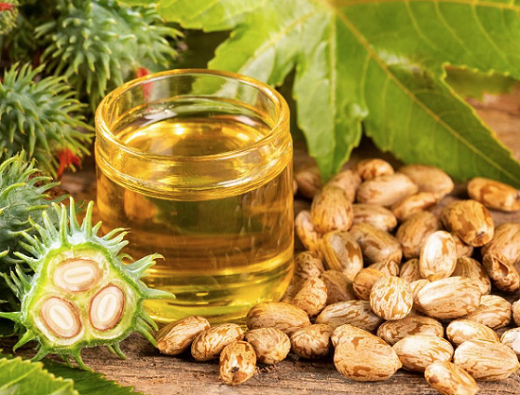
The hydroxyl functionality of RA makes the castor oil a natural polyol, providing oxidative stability to the oil and a relatively high shelf life compared to other oils by preventing peroxide formation. The presence of the hydroxyl group in RA and RA derivatives provides a functional group location for performing a variety of chemical reactions, including halogenation, dehydration, alkoxylation, esterification, and sulfation. As a result, this unique functionality allows castor oil to be used in industrial applications such as paints, coatings, inks, and lubricants.
Castor beans, the Source of castor oil, contain some allergenic (2S albumin) proteins and ricin; however, processed or refined castor oil is free from any of these substances and can be safely used in pharmaceutical applications. This can be attributed to its wide biological effects on higher organisms. Ricin is found exclusively in the endosperm of castor seeds and is classified as a type 2 ribosome-inactivating protein. Type 2 ribosome-inactivating proteins such as ricin from castor oil are lectins, which irreversibly inactivate ribosomes, thus stopping protein synthesis and eventually leading to cell death. This makes ricin a potent plant toxin.
Uses
Castor oil is used in the preparation of brake fluids, as an ingredient for soaps, lubricants, inks, paint and varnishes, and as the main ingredient in motor oils for high-speed automobile engines. Other miscellaneous applications of castor oil are in the formulation of cathartic, the formulation of contraceptive creams, as a component of synthetic flower scents, the preparation of bland emollients to treat skin diseases, and inducing labour during pregnancy at term. Castor oil-based synthetic detergents are less prone to foaming, and the disposal of the detergent hastened since microbiological breakdown has been simplified.
Castor oil is rich in ricinoleic acid, a monounsaturated fatty acid known for its moisturizing properties Source. It can be used alone or with other oils as a natural alternative to store-bought moisturizers. Unlike commercial products, it contains no harmful additives and is suitable for the face and body. However, it may cause allergic reactions in some individuals, so always dilute it with a carrier oil like coconut oil before using it, and do a small skin patch test first before using it on larger skin areas.
References:
[1] V. PATEL. Castor Oil: Properties, Uses, and Optimization of Processing Parameters in Commercial Production[J]. Lipid insights, 2016, 9 1: 267-293. DOI:10.4137/LPI.S40233.You may like
Related articles And Qustion
Lastest Price from Castor oil manufacturers
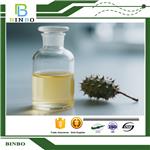
US $0.00/kg2025-11-06
- CAS:
- 8001-79-4
- Min. Order:
- 1kg
- Purity:
- 99%
- Supply Ability:
- 1000 kg

US $10.00/KG2025-04-21
- CAS:
- 8001-79-4
- Min. Order:
- 1KG
- Purity:
- 99%
- Supply Ability:
- 10 mt
